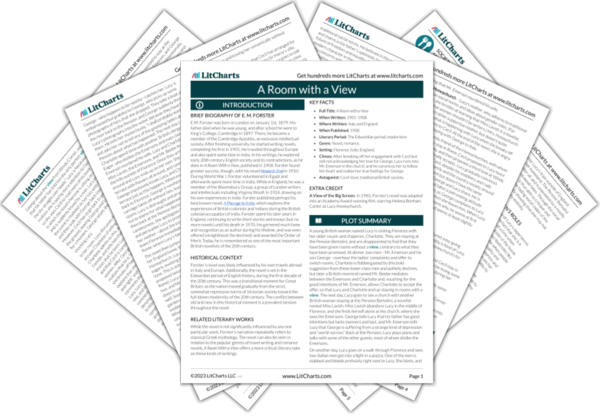In contrast, indoor spaces are generally symbolic of enclosure, restriction, and even oppression. In a conversation with Cecil, Lucy admits that she can only imagine him in a room with no windows. This suggests that Lucy associates Cecil (and her relationship with him) with a kind of closed-off restriction, even imprisonment, as she is trapped in the relationship and the relationship itself is trapped within the structures and expectations of traditional society. Given the importance of interior and exterior spaces in the novel, the motif of a view becomes equally important—as one might guess from the novel’s title, as well as from the mentions of views at the beginning and end of the novel. The idea of a room with a view represents a comfortable existence with some access to the immense freedom of the outdoor world. Lucy begins the novel desiring such a room, and successfully ends the novel at last in one with George. But the idea of a view can be read in a different way, as well. At the end of the novel, Lucy is still indoors, and can only look out at the open, free outdoors—thus, one could argue that she does not fully escape the constraints of mainstream society and only attains partial independence or freedom.
